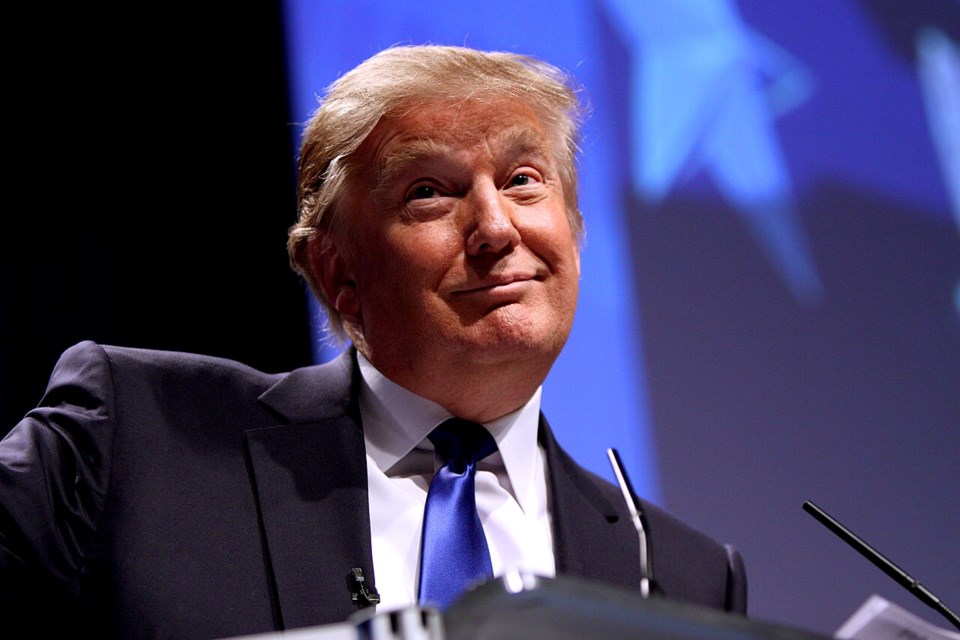At the start of 2024, 54 per cent of Canadians had a positive opinion of the United States, a significant increase from the all-time low of 32 per cent recorded in July 2020. Thirteen months ago, Canadians perceived our neighbouring nation in a much more favourable light under the presidency of Joe Biden than at the height of the COVID-19 pandemic with Donald Trump in the White House.
Plenty has changed since. Canada-U.S. relations became the top issue in surveys of likely voters conducted by Research Co. during the federal election campaign, after Trump initiated a tariff dispute and mused about Canada becoming an American state — a course of action that only 21 per cent of Canadians want to seriously contemplate.
Trump’s rhetoric has influenced our collective perceptions of the U.S. This year, only 26 per cent of Canadians hold positive views of the country — down 28 points since January 2024 and six points below the previous all-time low — while two-thirds (67 per cent, up 29 points) espouse negative ones.
It is impossible to find a demographic that has not soured when thinking about America. Only 19 per cent of women (down 30 points) hold favourable views on the United States, compared to 33 per cent of men (down 27 points). Animosity grows with age, with positive perceptions at 33 per cent for Canadians aged 18 to 34 (down 23 points), and dropping to 25 per cent for Canadians aged 35 to 54 (down 26 points) and 19 per cent for Canadians aged 55 and over (down 37 points).
In no region do we see a least a third of Canadians expressing favourable views about the United States. The proportion is highest in Saskatchewan and Manitoba (30 per cent, down 30 points), followed by Alberta (29 per cent, down 24 points), Ontario (26 per cent, down 31 points), B.C. (also 26 per cent, down 24 points), Quebec (25 per cent, down 27 points) and Atlantic Canada (17 per cent, down 30 points).
Conservative Party supporters have traditionally expressed a greater affinity for the U.S. In January 2024, just over two-thirds (68 per cent) held positive views, compared with 57 per cent of Liberal Party voters and 44 per cent of NDP voters. This year, the drops among all three groups of partisans are staggering: 35 points among Liberals (to 22 per cent), 33 points among Conservatives (to 35 per cent) and 24 points among New Democrats (to 20 per cent).
To put in context just how bad these numbers are, at least two-thirds of Canadians express favourable views on the United Kingdom (72 per cent), Italy (also 72 per cent), Japan (71 points), France (67 per cent) and Germany (66 per cent). Mexico (59 per cent) and South Korea (57 per cent) are also thought of favourably by a majority of Canadians.
America’s favourability rating is currently lower than what is observed for Venezuela (34 per cent, up eight points), India (33 per cent, up three points), Saudi Arabia (31 per cent, up six points) and China (30 per cent, up eight points). Our collective perceptions about these countries — a list that includes two that have been heavily featured in discussions related to foreign interference in Canadian politics — have become more favourable over the past 13 months.
The U.S. is not near the bottom of the list, which is still occupied by Russia (19 per cent), Iran (17 per cent) and North Korea (17 per cent).
Canadians looked down on the United States during the COVID-19 pandemic, particularly because their head of state seemed unqualified to manage the task at hand. Now, that same individual is impacting domestic politics. It will take a concerted effort on the part of the U.S. for things to change in the next three and a half years. Or, as was the case in 2021, the election of a president who Canadians find more palatable.
Mario Canseco is president of Research Co.
Results are based on an online survey conducted from April 7-9, 2025, among 1,002 adults in Canada. The data has been statistically weighted according to census figures for age, gender and region in Canada. The margin of error is plus or minus 3.1 percentage points, 19 times out of 20.




